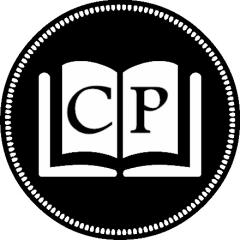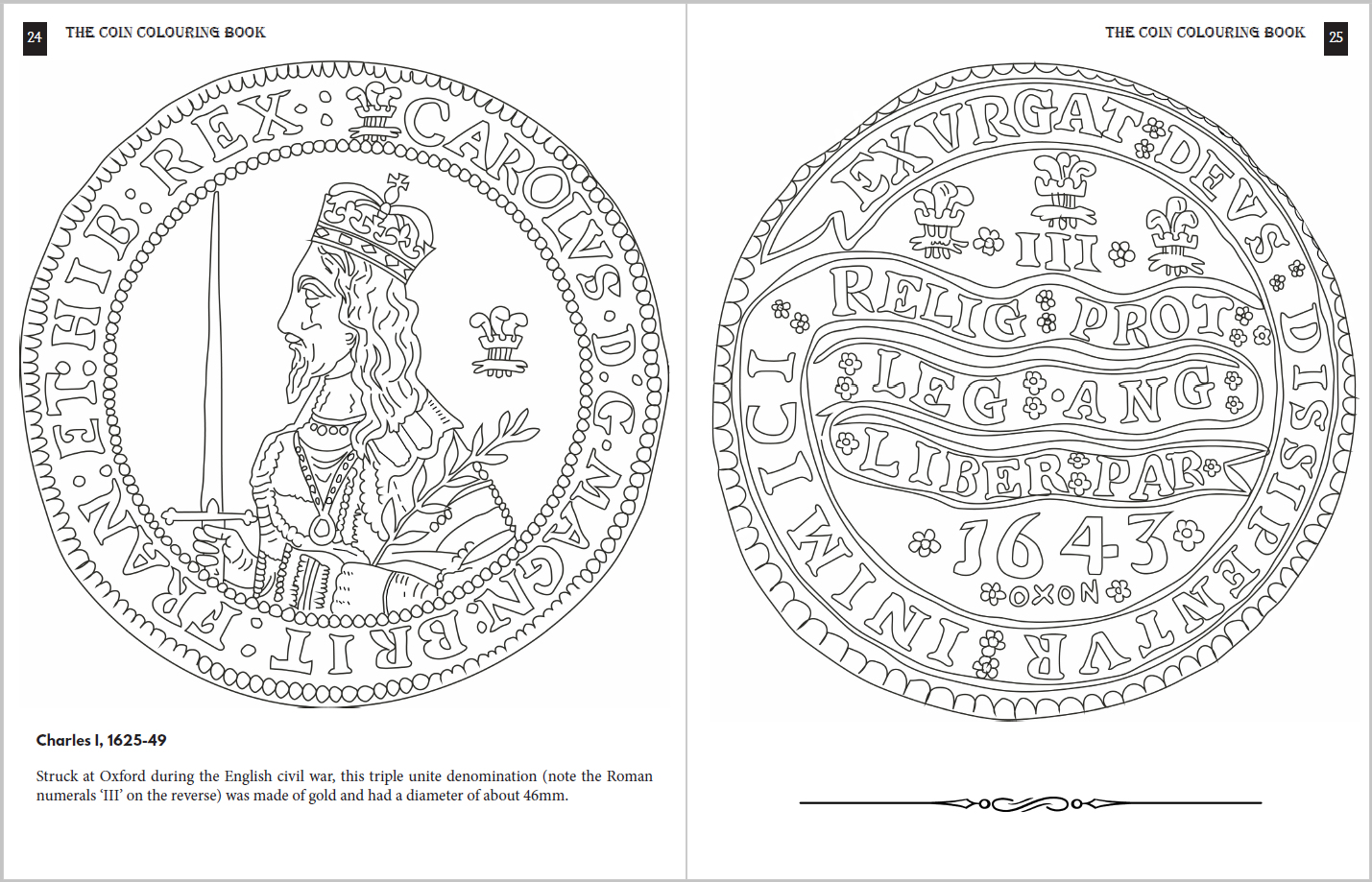-
Posts
5,627 -
Joined
-
Last visited
-
Days Won
34
Content Type
Profiles
Forums
Events
Downloads
Store
Gallery
Articles
Everything posted by Chris Perkins
-
Yes that's a good idea. Email me a book review to start if you like and i'll post it in a new forum. Anyone else that cares to provide a title and a review please email me and we'll get something started. I do have a review on the site for the Collectors Coins GB 2004 book here: http://www.predecimal.com/books/collectors_coins_review.htm I agree, economic history is facinating, and tied in very much with coinage and it's continued debasement over the years. Even in Roman times the bronze coins got smaller and smaller and the silver coins became silver washed bronze. Chris www.predecimal.com email: cp@predecimal.com
-
Dal, I know a Dealer in South East London that stocks a lot of books and he may have it. Last time I was there I saw the RIC books but didn't take note which they were. He is very reputable, but I have a grudge against him at the moment so won't give out his web URL and provide him with free advertising!! In fact his website is awful and doesn't list his book stock so you'd have to give him a ring. Email me and I'll point you in the right direction. Chris www.predecimal.com cp@predecimal.com
-
Dal, My friend Richard who runs a new site www.coinsforsale.co.uk has the knowledge. Although he may not have the time as he wants to sell coins, not tell people about them for free! Maybe worth a try if you tell him I sent you and ask him very nicely indeed. Chris www.predecimal.com
-
It was Oscar Wilde that said 'America and England have everything in common, except of course language'. I don't care how the U's got there, they're staying now! I'm glad it looks prettier, well done those standardisers! (or should that be Standardizers? or is that actually even a word?). Maybe I'll start a Forum to talk about anything that isn't to do with coins.... Chris www.predecimal.com
-
By the way.... I must insist on the proper British spellings being used in the forum. Anyone found writing 'color' and not 'colour' will be banned for a week! That goes for Americans too I'm afraid. Chris
-
Well there appears to be a proper little community here that I hadn't noticed! Good work Sylvester it really is good to have someone in the Forum to welcome people and talk about sensible stuff! I'll just let you get on with it then. Peter Nicholls is all very well but you know my collecting accessories are fantastic too! Chris www.predecimal.com
-
Fake pound coins are becoming more widespread. THis months Coin News Magazine has a feature on it. www.tokenpublishing.com I have emailed you Helen. Chris Perkins www.predecimal.com
-
Emailed you Helen. It is an escalating problem. Chris www.predecimal.com
-
Well I certainly don't think some penny sweets are worth 5p each! I don't think they will ever be able to control the 99.99 nonsense because making something just under a round figure has been a marketing trick for hundreds of years, and it would only revert to 99.95 if you had your way. And we'd end up with pockets full of copper 5p's (which would look familiar) instead! I think although the penny is small denomination it still has justified worth. 100 make up a pound. If we went back to having 5p's (or shillings!) as the base unit of 1/20th of a pound we'd no longer have a decimal system would we, and that would hinder trade with foreign countries, and would be a nightmare to convert the electronic devices into counting 20 units in a pound, not 100. The pound has to have a 1/100th part. I'm afraid as romantic as it may seem, we cannot go back to a pre decimal system. Perhaps the answer would be to somehow make the pound worth more and therfore the penny too. Chris www.predecimal.com
-
You can get hologramatic coins and coloured coins, and there have been square coins. I think the cost of producing odd coins is too high and likely not to see minstream circulation. Which is probably good because I believe coins should be coin coloured, that is metal colours like they always were. Feel free to spray paint your change to create a colourful arrangement, in fact what a great 'modern art' idea. (copywritten from this point on). You read it here first! Please post scans of artistically spray painted coins here! Chris www.predecimal.com
-
David, Yes that's pretty much the way it went for me. But what can you do, Ebay are the bigest and therefore are likely to get the best prices for your items, and also provide the best bargains for buyers. Since that moment I have listed only 3 items on ebay, when at one stage I was doing 20 a week. I have fortunately seen busy times with the website the last couple of weeks, probably due to Christmas so am putting my energy into that. Right now the accessory sales on the site are rising as are the visitors and I don't need bloody ebay at this moment! The website took 3 years to get to what it is now, so unfortunately that option my not be good for everyone. Chris www.predecimal.com
-

Double-headed George VI shilling
Chris Perkins replied to a topic in British Coin Related Discussions & Enquiries
No i haven't, but have heard about double tailed modern coins. I have a 1928 Halfpenny struck in bronze with a shilling collar (ie it's shilling size with a milled edge!). How much do you want for it?? Chris www.predecimal.com -
You get a good international audience, don't get me wrong, but they do seem to want to take over the world. Chris
-
Yes, you have to be logged in to see the 'My Controls' at the top! Chris
-
Thanks for the info Dan, you're the only member to bother putting anything about yourself so far! I have a 1937 proof Sov if you're interested, perhaps you better get your driving test out of the way first. Chris www.predecimal.com
-
Tony, It's most likely a Farthing if it's around the size of a modern penny. A common year and not worth much unless in Extremely Fine condition or better. Chris perkins www.predecimal.com
-

"New pence"...does it have any Value?
Chris Perkins replied to a topic in British Coin Related Discussions & Enquiries
Oli, I seem to remember reading that they were all recovered and are accounted for. I think when they rarely come up for sale that the last one sold for GBP30,000 or something like that. That kind of legendary coin though, you can expect it to increase in value by thousands of pounds year on year. Chris www.predecimal.com -
Dear Lindy, To most of us predominantly British people in the forum the 'size of a nickel' means nothing! It's a George V sovereign (should be 22mm, not 19mm) and worth around GBP60.00 for it's gold content, unless it is in mint condition, in which case it will be worth more. Does it have a small letter above the date of the piece of ground? Chris Perkins www.predecimal.com
-

British shilling from east africa 1950
Chris Perkins replied to a topic in Enquiries about Non British coins
Dear Dan, Research has led me to the following info: The 1950 East African Shilling is made of Cupro Nickel, and is one of 56,362,000 (that's a lot!). It is only worth GBP2.00 in Uncirculated condition, and really just pennies in any lesser grade I'm afraid. British East Africa consisted (it no longer exists) of Kenya, Parts of Tanzania, Zanzibar, Uganda and part of Somalia. The GB Coins are nothing that special and you should see my lists of coins for sale on the site (www.predecimal.com) or better still, buy this book: http://www.predecimal.com/books/ccgb2004framed.htm The Deutsch Ostafrika coin is one of 1,300,000 and will show either a J or A mintmark. Both are worth around GBP10.00 in Fine condition, right up to GBP90.00 if the coin is uncirculated. German East Africa is now Tanganyika, sanwiched between Kenya to the North and Mozambique to the South. Thank you, Chris Perkins www.predecimal.com -

"New pence"...does it have any Value?
Chris Perkins replied to a topic in British Coin Related Discussions & Enquiries
Thanks Sylvester, I remember noticing a difference in the 10p's in 1992 and remember how pleased I was that I had done so. They were common then, but you're right they are scarcer now. I always wondered how vending machines coped with 2 completely different 10p's, and the 5p's also have rounded or sharp edges too don't they. Chris www.predecimal.com -
I do remember a little bit of a thing about those 1988 Pound coins, and remember hearing that people were keeping them at the time. That took 15 years for the public to forget, I hope the bloody 2p rumour runs its course much quicker, or i'll go completely mad. Will just update the position of my 2p article link! Chris www.predecimal.com
